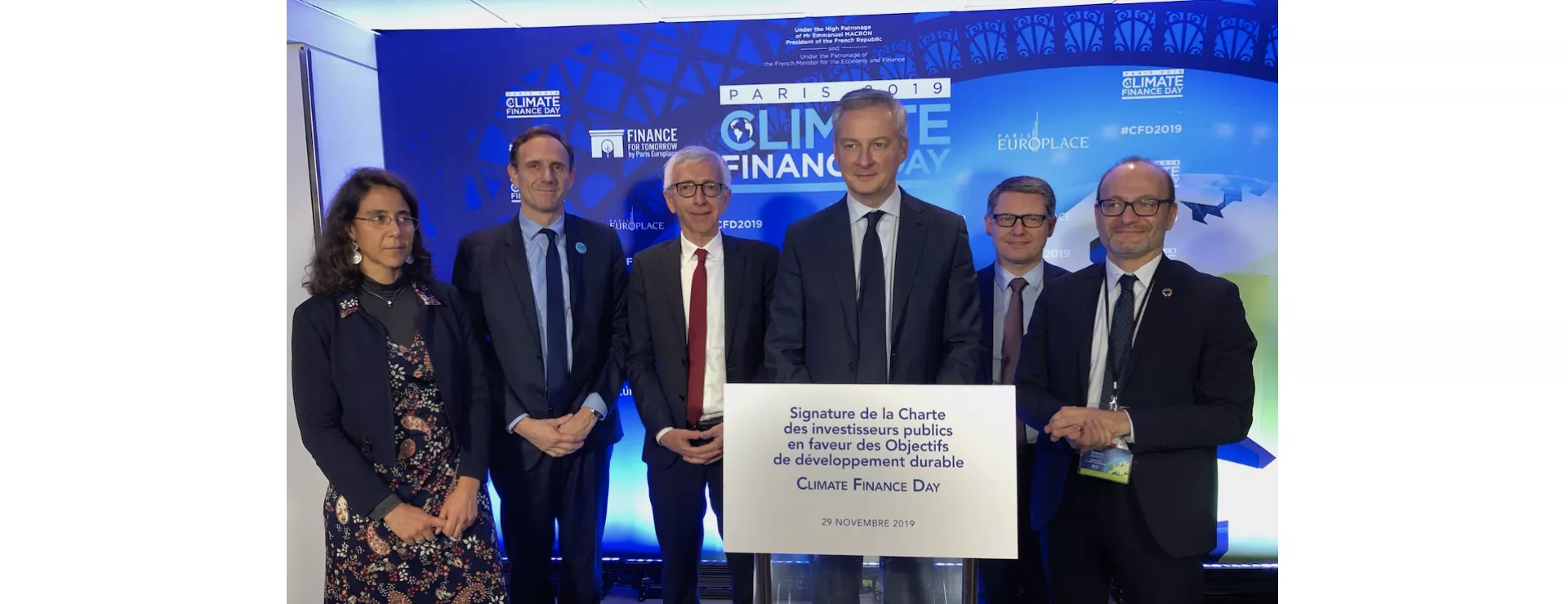One year review of the Charter of the French Public Investors


In 2019 Caisse des Dépôts Group, the French national development bank, has decided to integrate SDGs to its strategic management and financing decisions.
Why ?
Caisse des Dépôts Group, a financial institution at the service of national economic development, has redefined its mission as the promotion of social cohesion and sustainable development throughout French territories. To implement it, Caisse des Dépôts developed in 2019 a robust, flexible and simple approach to evaluating the positive and negative outcomes from its activities and to improve its impact on key societal priorities, identified using the SDGs. We chose this matrix, as it is universal , adresses key sustainability challenges that are relevant for all its activities, counterparties and stakeholders.
This group-wide project has three main objectives: i)evaluate how each unit implements and accounts for the new corporate mission, with the aim of increasing its contribution; ii) better articulate financial, strategic and sustainability management processes; and iii) contribute to the development and implementation of a French SDGs roadmap.
How ?
This SDG roadmap has been developed by an internal SDG taskforce of 30 collaborators, with expertise and responsibilities ranging from sustainability, strategy and senior management, across all business lines.
With the assistance of the sustainable policy team, each unit rated the positive and negative impacts of their activities on all the different SDG targets, and identified levers for improving this impact. It then drew up its action plan by prioritizing key issues and levers, using three types of criteria: real economy impact; contribution to operational efficiency and strategic alignment. Those levers encompass corporate and financial processes, from improved due diligences to reduce negative impacts, increased allocation for high impact activities and projects, strengthening shareholder expectations with respect to the SDG targets, as well as internal HR, systems and office management.
The resulting scorecards were consolidated at the group level into:
The overall group scorecard was approved by the executive board. The taskforce then developed a process to supervise and monitor the plan’s implementation, to enable an annual performance review by the group executive committee and supervisory board. This included the definition of a key performance indicator per action, some of them expressed in terms of contribution to national targets, such as the energy transition, affordable housing for all, the development of entrepreneurship and the wide ranging development of professional skillsets for an inclusive and sustainable growth.
What is the expected impact of integrating SDGs?
By early 2021, the taskforce will propose quantitative targets for each action for the board’s approval. They will have a concrete impact on the allocation of CDC Group financing as they will be integrated into medium term strategic planning, asset allocation, risk monitoring and corporate reporting. Moreover, this consistent framework will enable its stakeholders to better understand the Group’s impact and strategy on society as a whole, as well as on specific themes of interest.
The SDG roadmap is also an opportunity to share practices and reinforce relationships with financial partners, such as institutional investors and other public banks, and customers such as corporates and local authorities.The Finance in Common Summit is a very relevant initiative in order to exchange good practices in that field and we are looking forward to contributing to it .